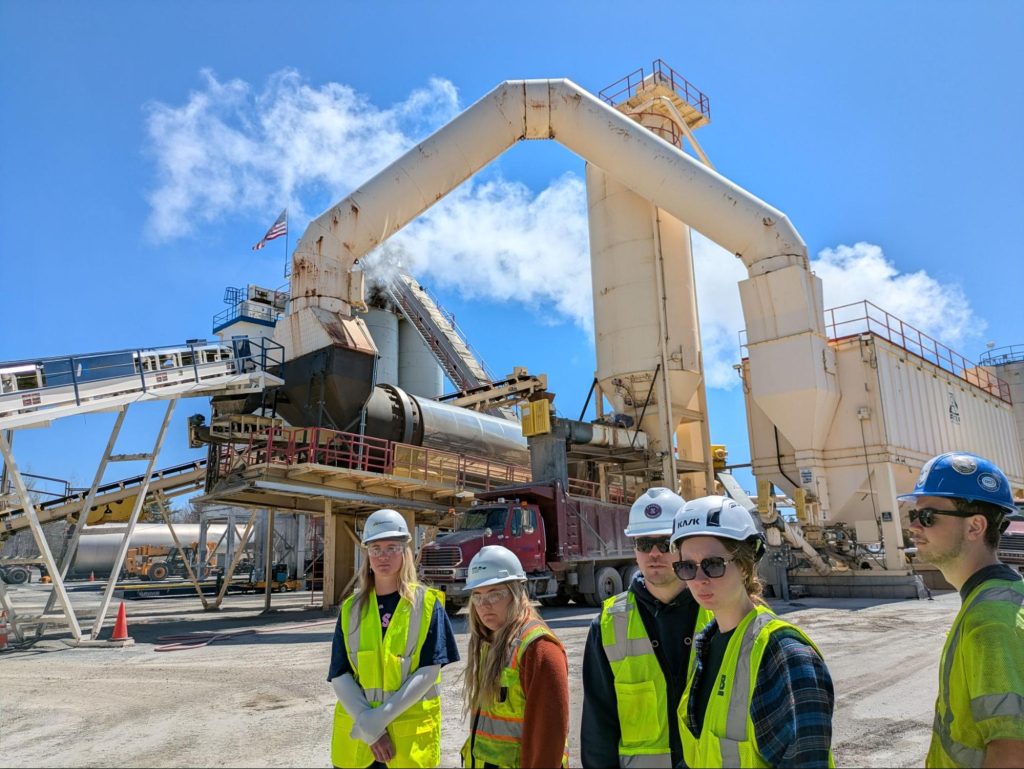 Students touring the Northeast Paving asphalt plant in April 2025
Students touring the Northeast Paving asphalt plant in April 2025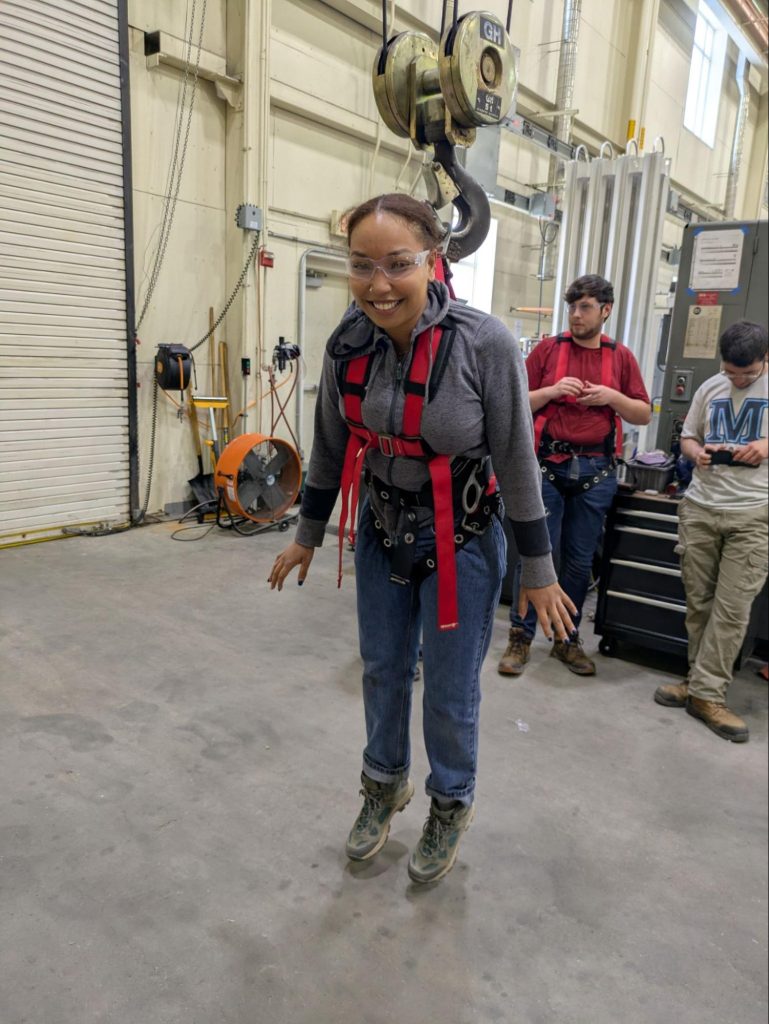 CET 224: Construction Safety fall protection lab, April 2025
CET 224: Construction Safety fall protection lab, April 2025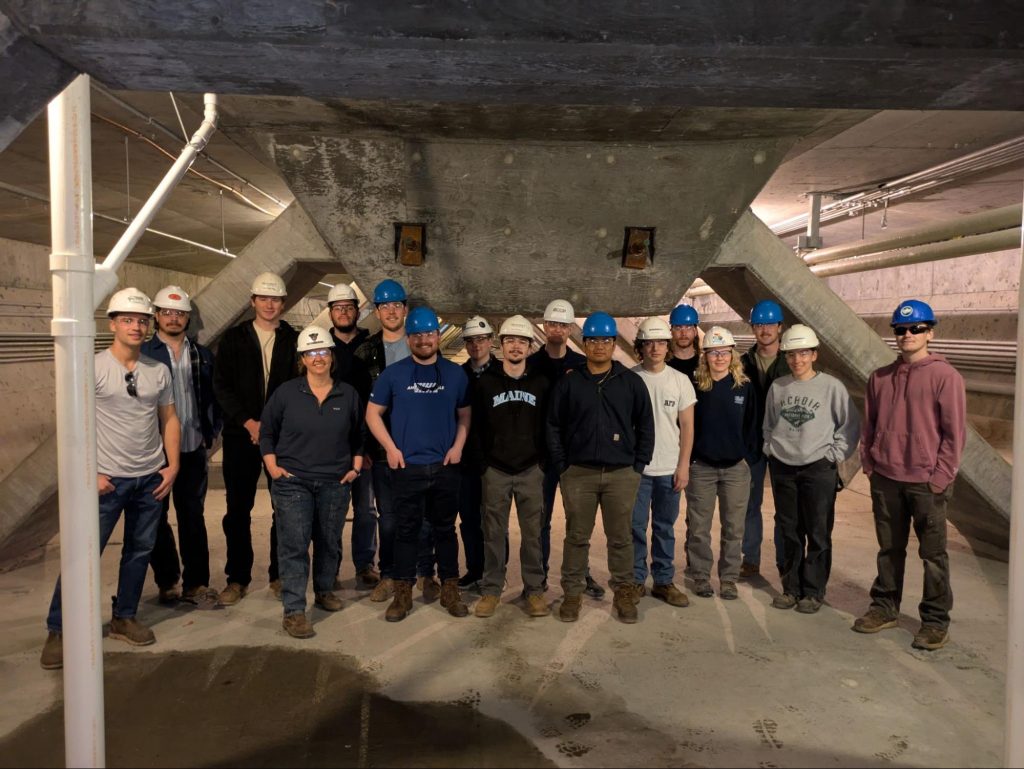
 Road building capstone project at the Maine Forest and Logging Museum, fall 2025
Road building capstone project at the Maine Forest and Logging Museum, fall 2025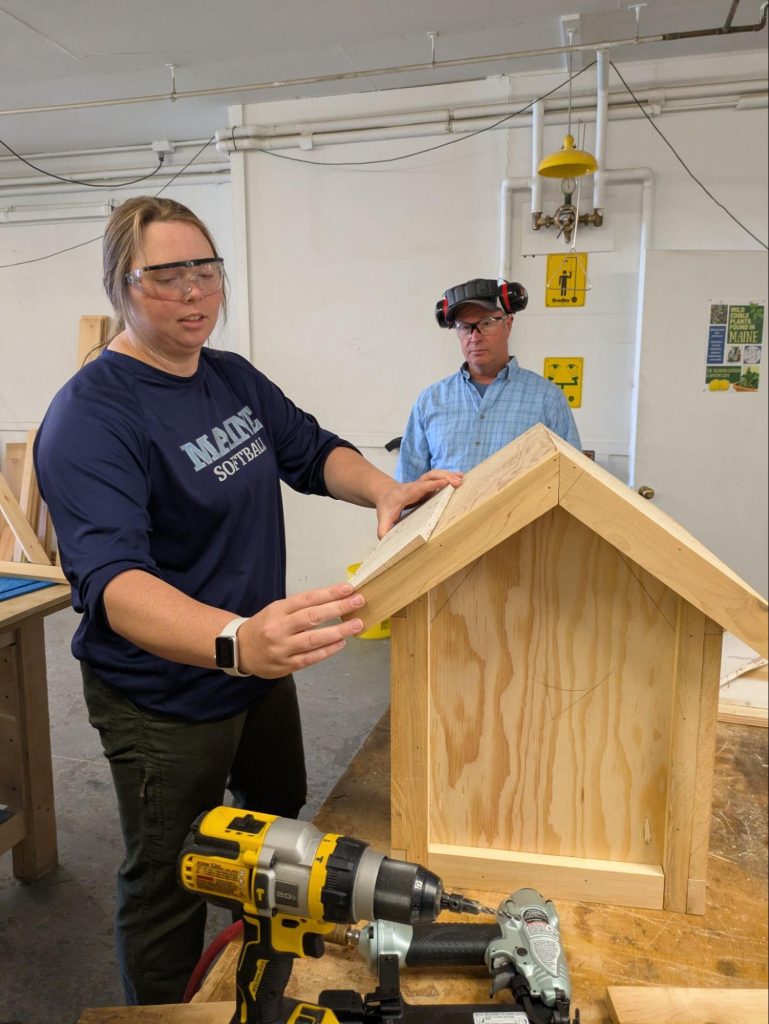
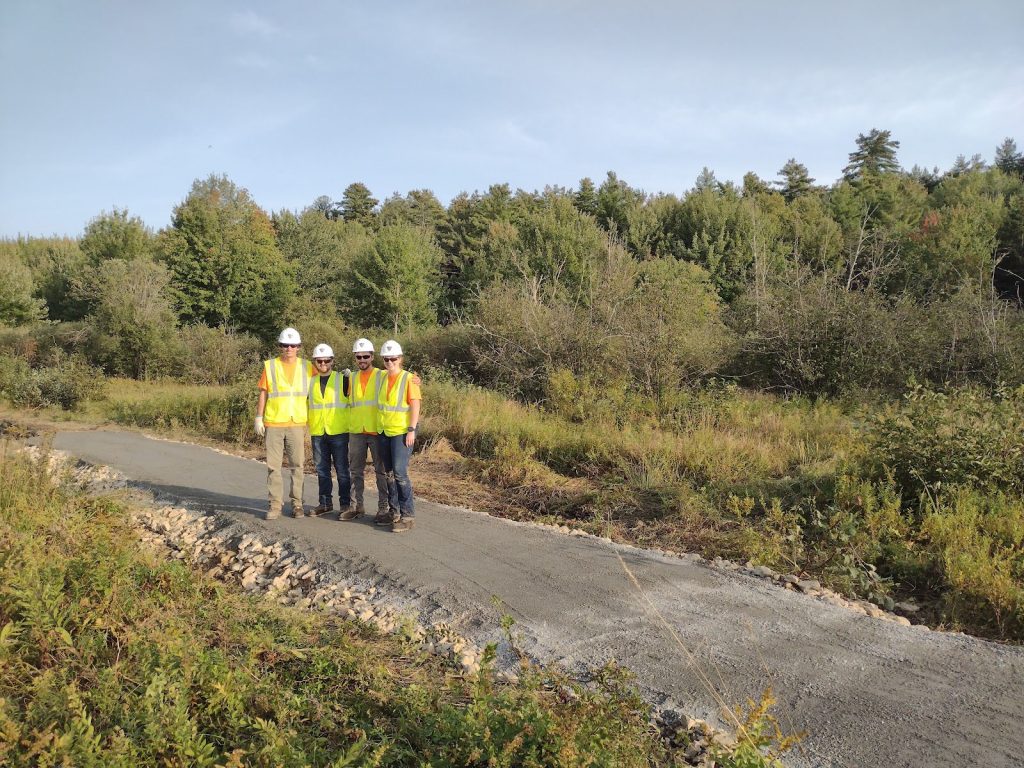 Trail building capstone project at Field’s Pond Audubon Center, fall 2025
Trail building capstone project at Field’s Pond Audubon Center, fall 2025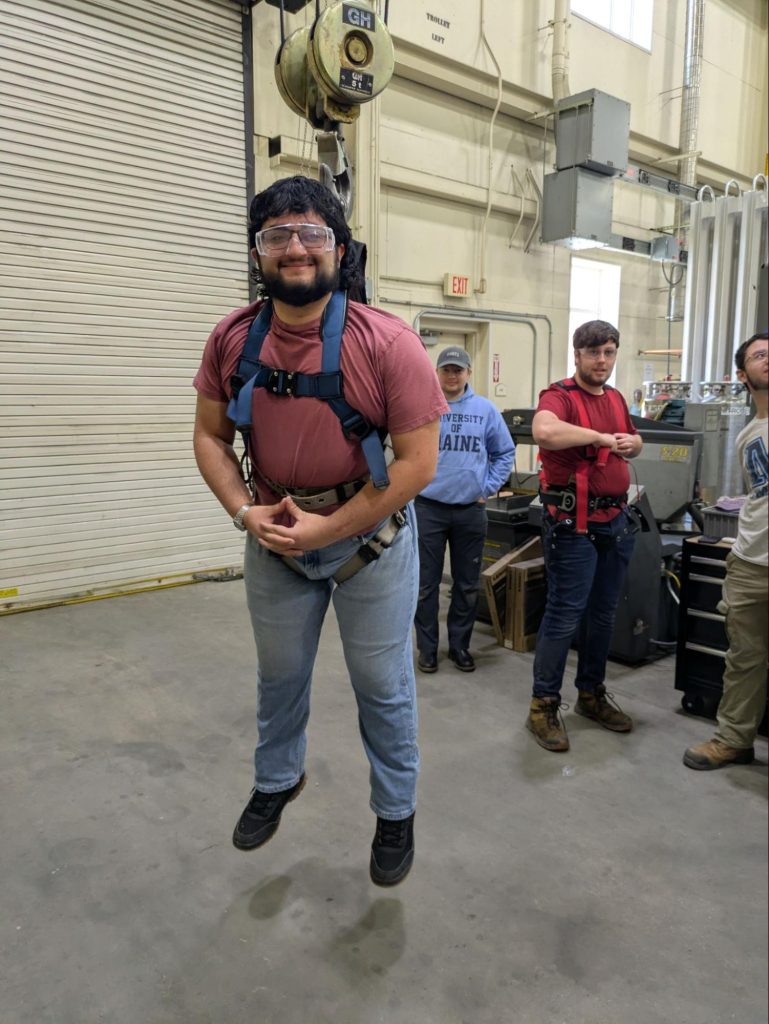 CET 224: Construction Safety fall protection lab, April 2025
CET 224: Construction Safety fall protection lab, April 2025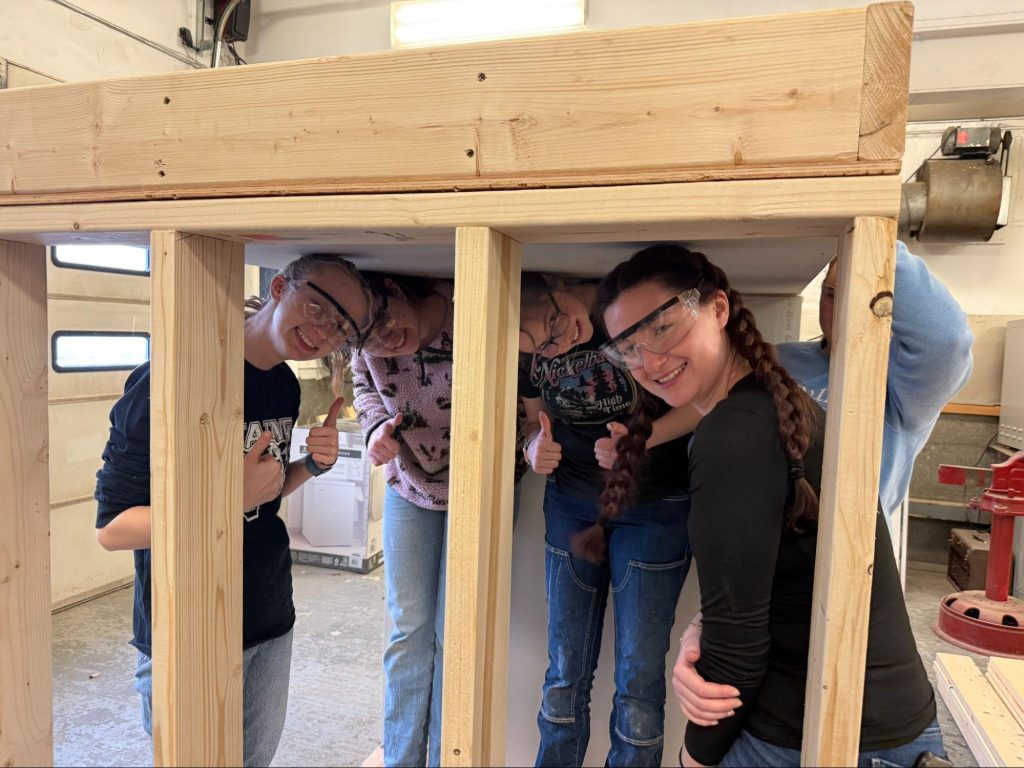 CET 228 Introduction to Estimating and Planning lab, April 2025
CET 228 Introduction to Estimating and Planning lab, April 2025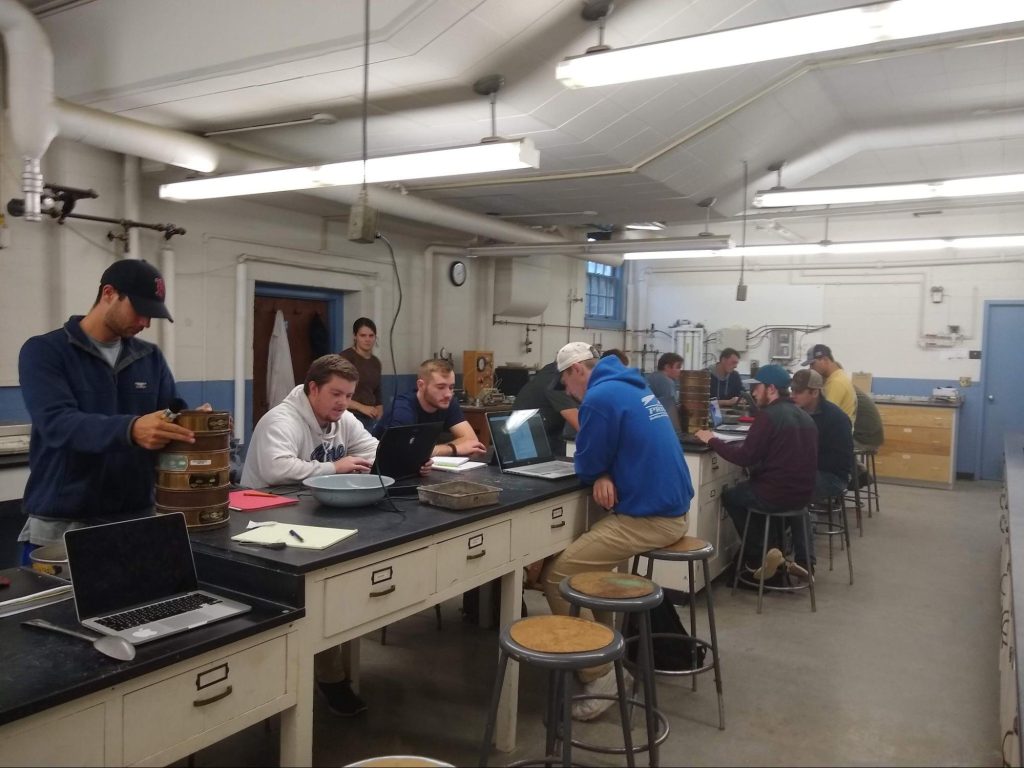 CET 327 Soil Mechanics lab
CET 327 Soil Mechanics lab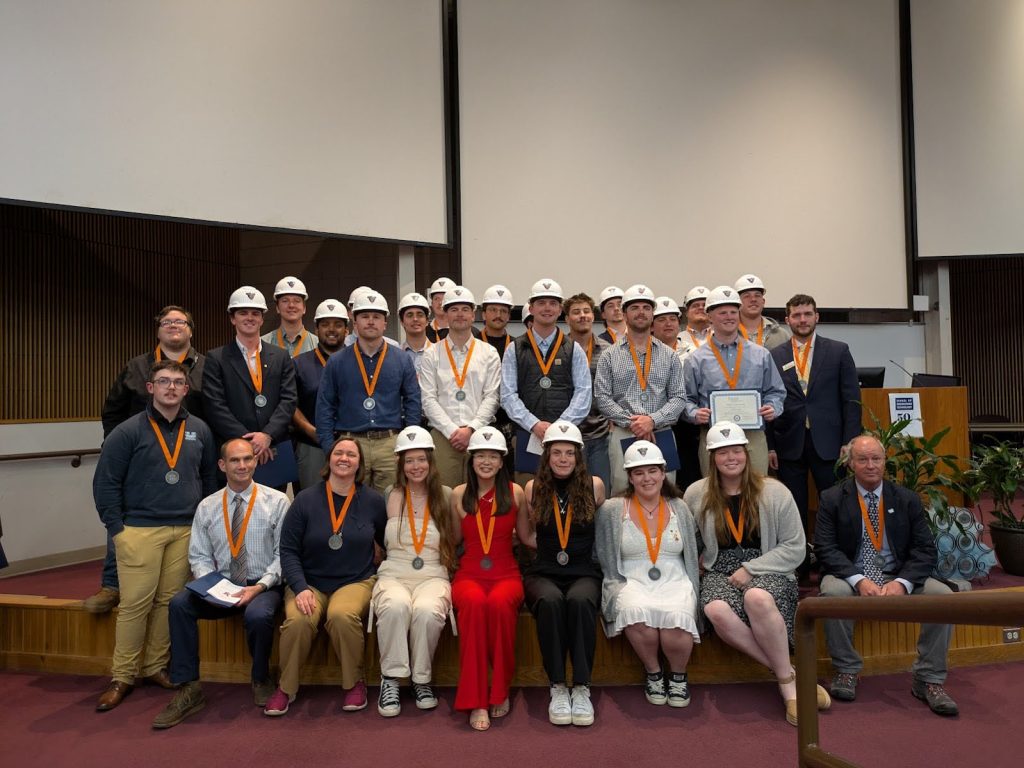 Graduates and faculty, May 2025
Graduates and faculty, May 2025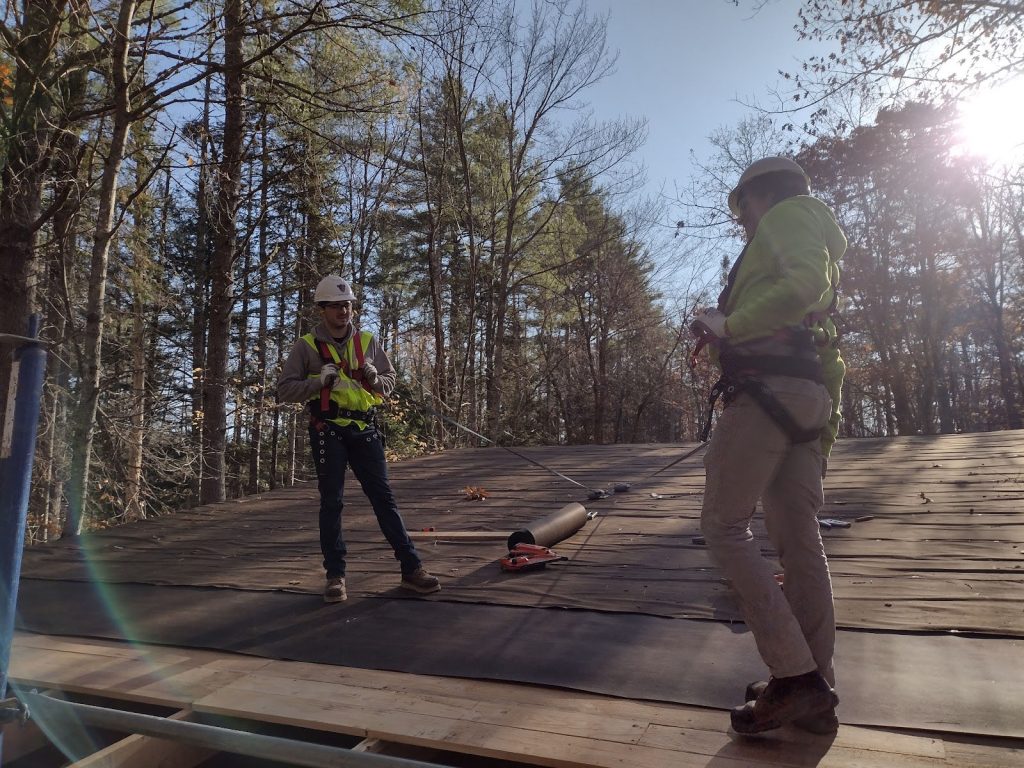 Capstone students replacing and extending a roof at Hirundo Wildlife Refuge, fall 2025
Capstone students replacing and extending a roof at Hirundo Wildlife Refuge, fall 2025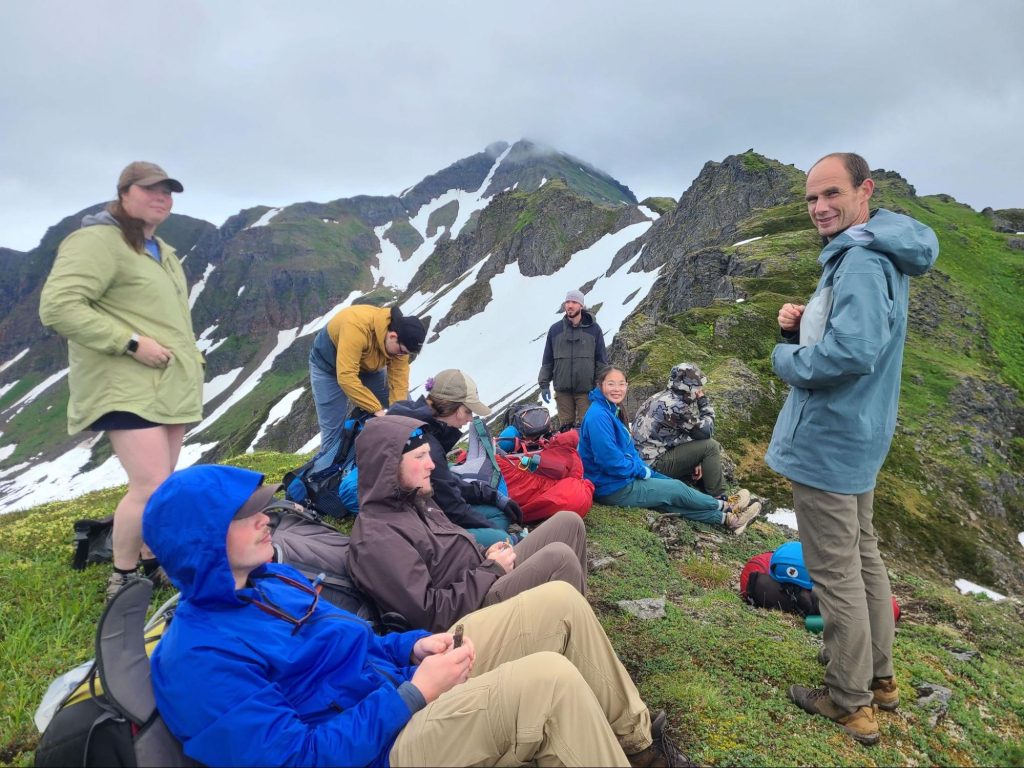 Students and faculty member Drew Pickering hiking to Camp 17, Juneau Icefield in July 2024
Students and faculty member Drew Pickering hiking to Camp 17, Juneau Icefield in July 2024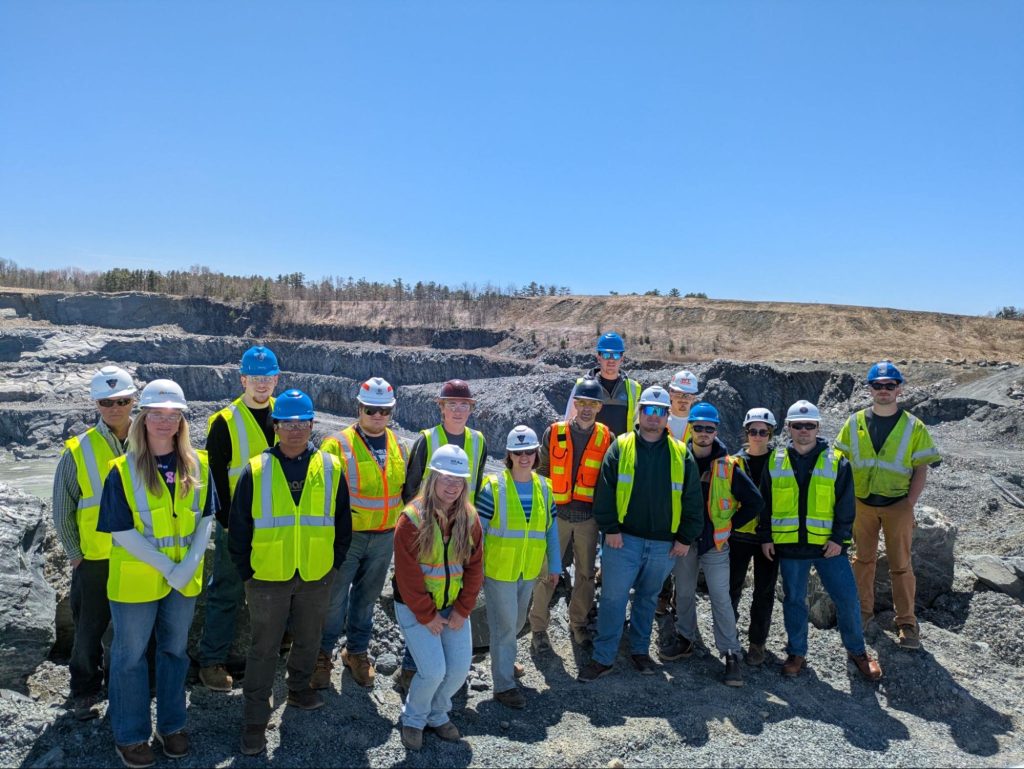
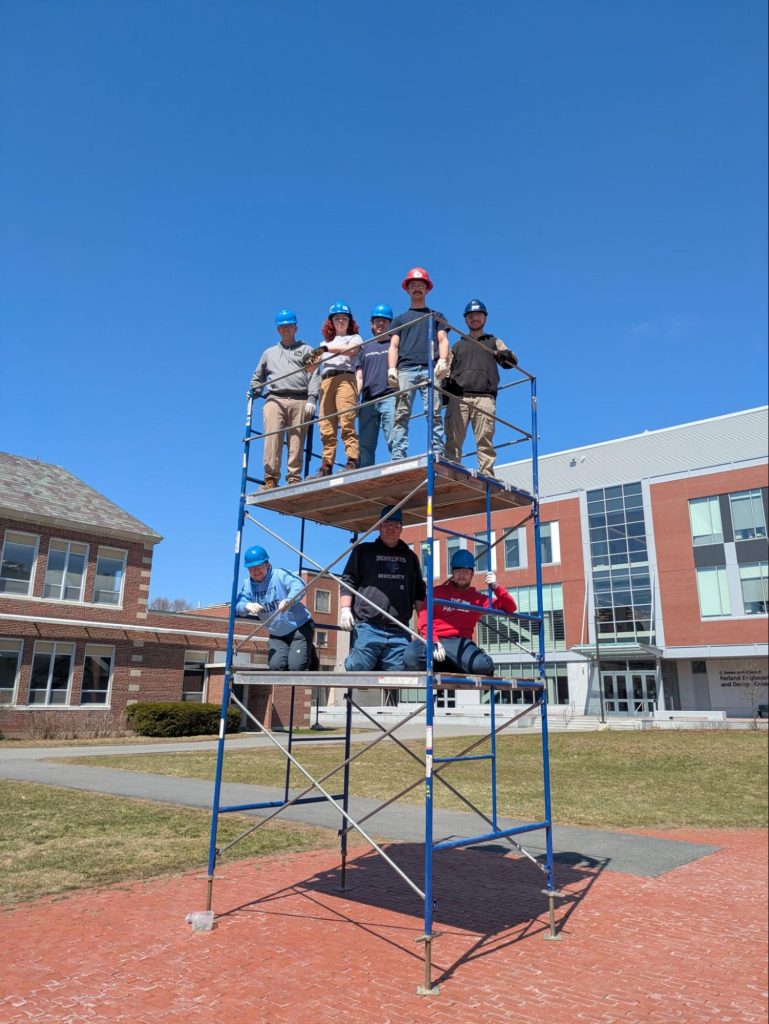 CET 224 Construction Safety scaffolding lab, April 2025
CET 224 Construction Safety scaffolding lab, April 2025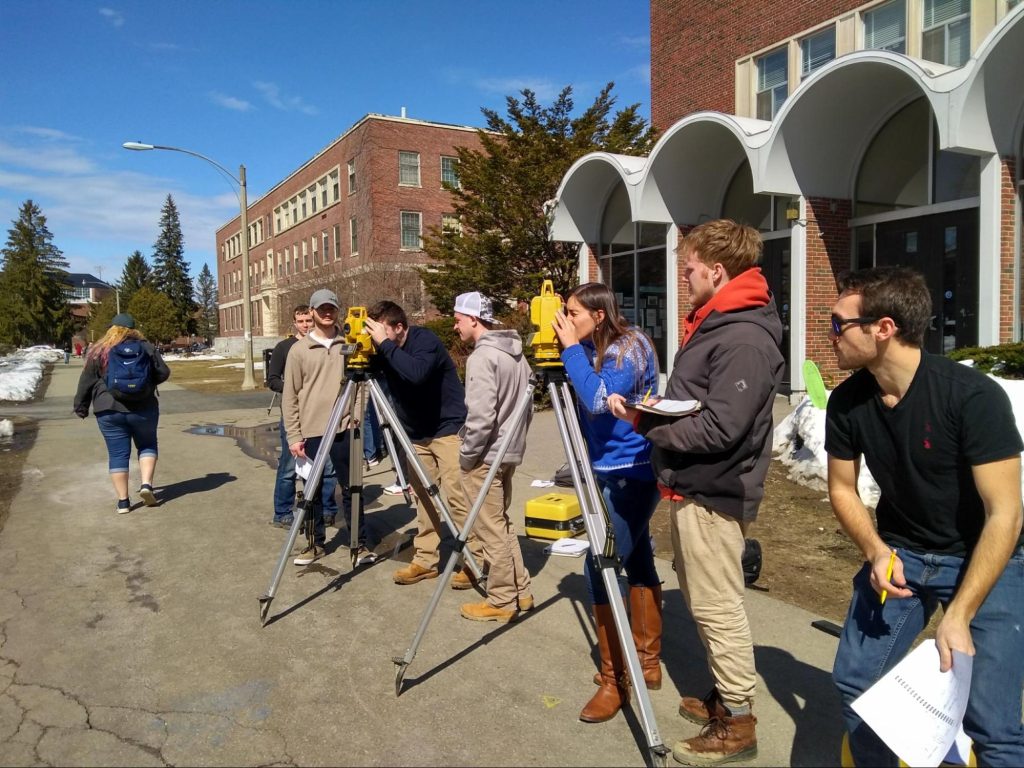 CET 101 Plane Surveying lab.
CET 101 Plane Surveying lab.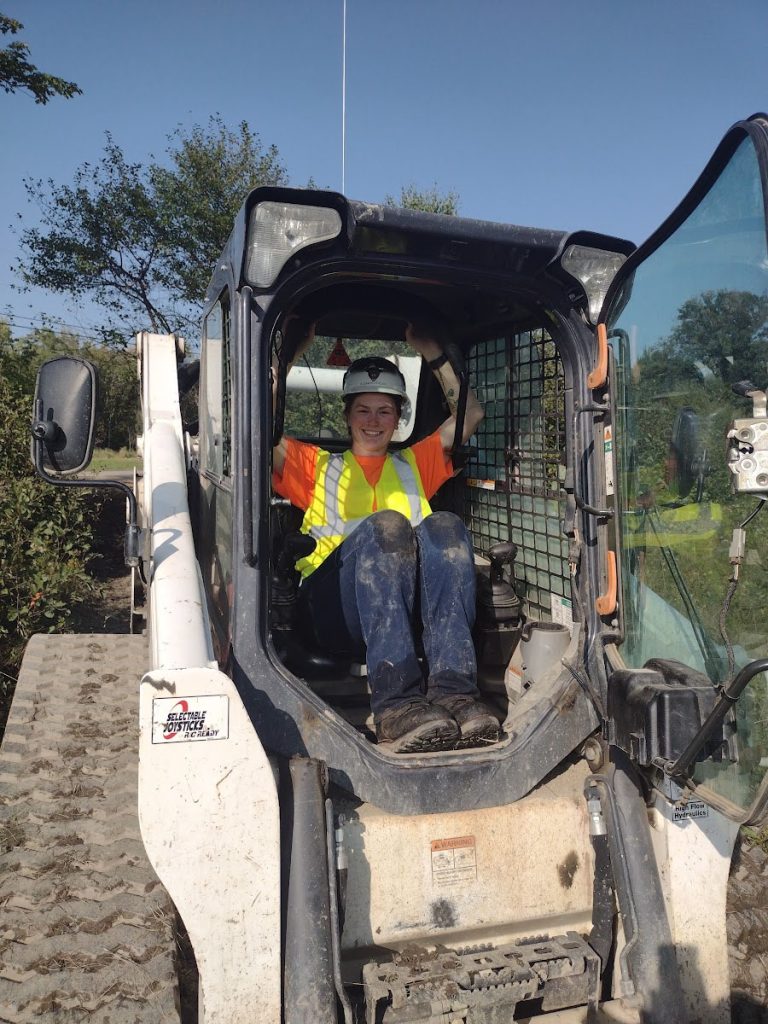 Trail building capstone project at Field’s Pond Audubon Center, fall 2025
Trail building capstone project at Field’s Pond Audubon Center, fall 2025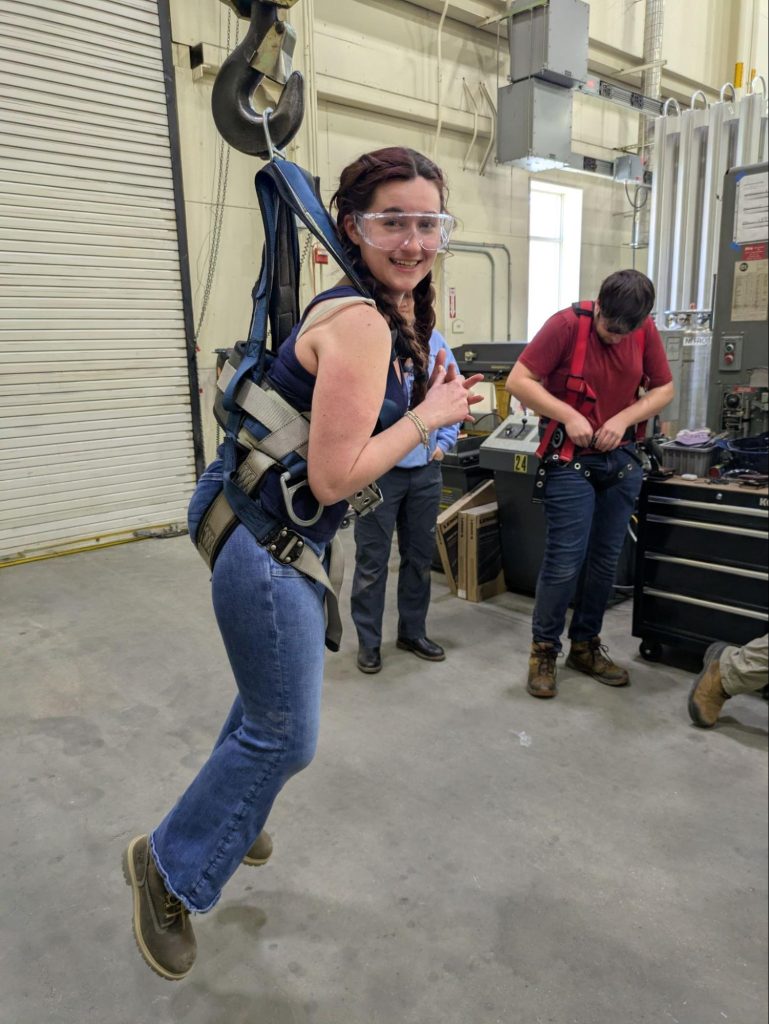 CET 224: Construction Safety fall protection lab, April 2025
CET 224: Construction Safety fall protection lab, April 2025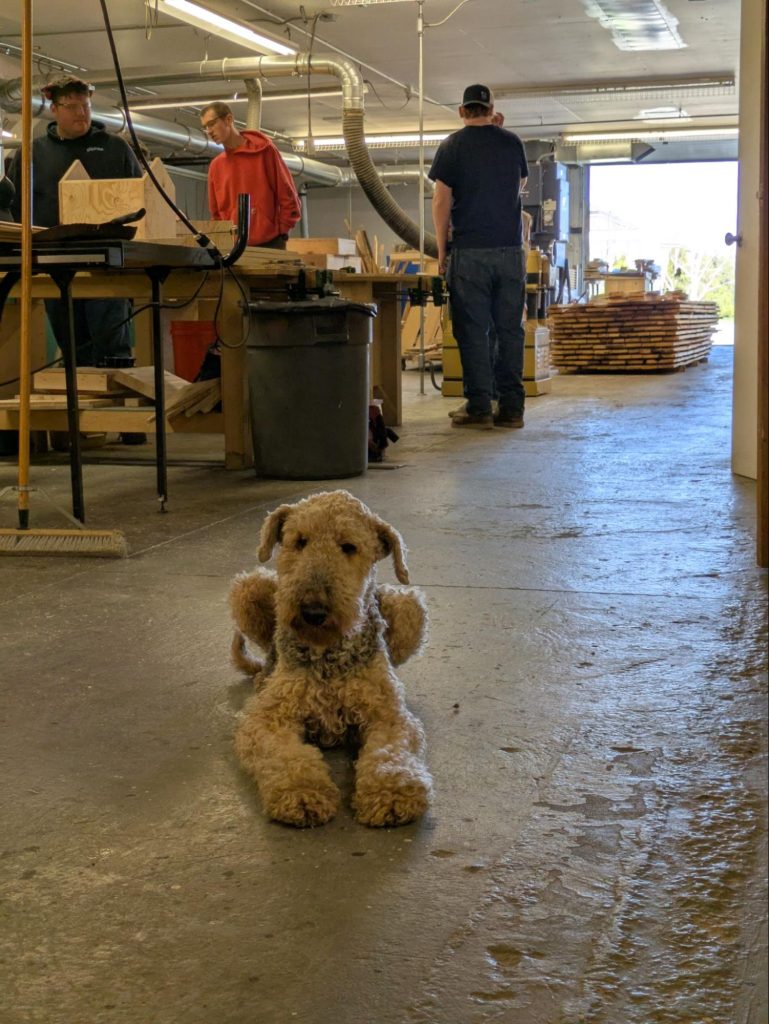 Henry and students working on Maine Day service projects.
Henry and students working on Maine Day service projects.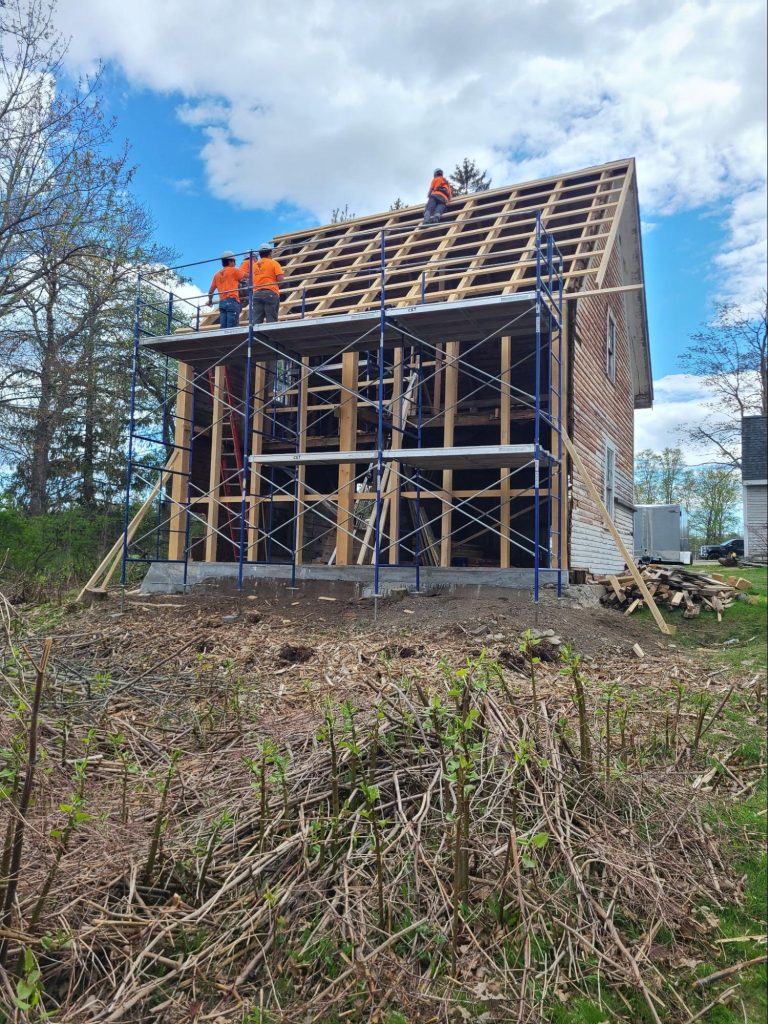 Capstone students rebuilding the Edith Patch House barn, May 2025
Capstone students rebuilding the Edith Patch House barn, May 2025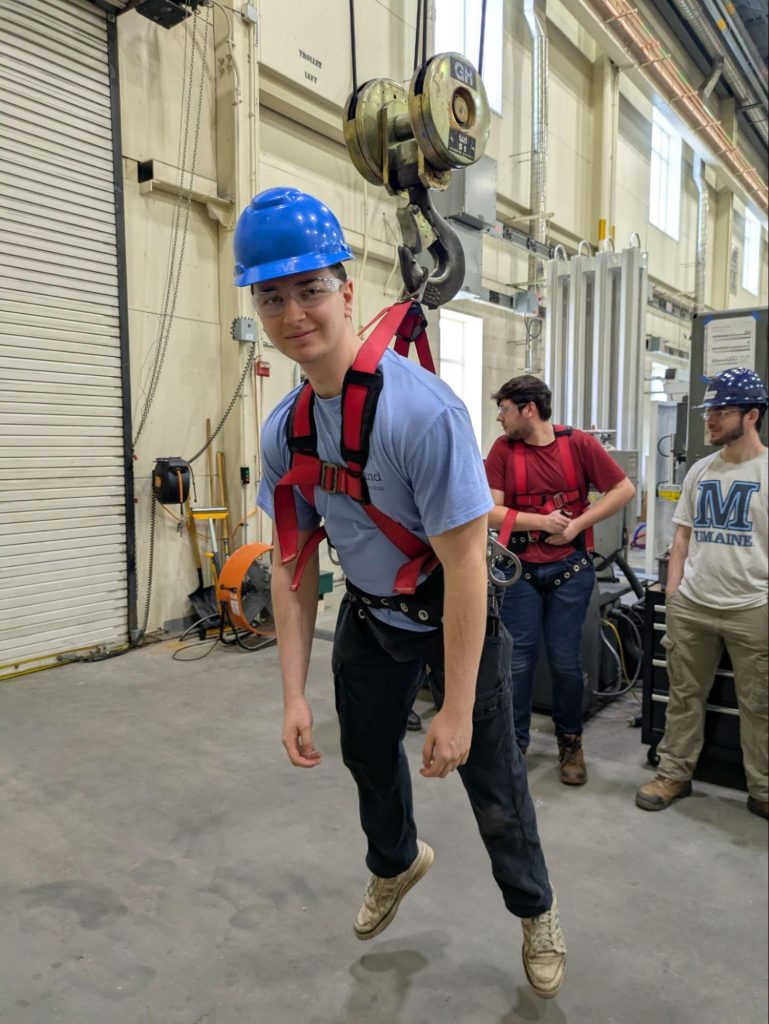 CET 224: Construction Safety fall protection lab, April 2025
CET 224: Construction Safety fall protection lab, April 2025
Construction Engineering Technology (CET) at UMaine is a hands-on, close-knit program that prepares students for real-world careers in construction through practical experiences, industry connections, and community-focused projects.
From the beginning of the program, CET students start building the foundation for their future. In the first year, students take foundational courses like CET 100 (Introduction to Construction Engineering) and general education classes such as math, physics, public speaking, and psychology. In the second semester, students begin hands-on learning in CET 101: Plane Surveying, using professional-grade instruments in the field. Many also take CET 224: Construction Safety, where they earn an OSHA 30-Hour Construction Safety and Health Card.
CET students often work in the construction industry during their summer breaks, earning competitive wages and gaining valuable on-site experience. Faculty actively help students connect with companies such as Cianbro, Consigli, R.F. Jordan, Sargent, Kiewit, and Northeast Paving. Students work in a variety of fields including vertical construction (buildings), horizontal construction (earthwork and roads), bridges, surveying, and construction inspection. These summer jobs frequently lead to full-time offers after graduation and help students identify which types of construction work best match their interests.
Throughout the program, CET students build strong bonds with their classmates. They take many of the same classes together, study together, and often participate in extracurricular events and volunteer opportunities. It’s been said that CET students “travel in packs”—where you find one, you’ll often find several more. The Student Construction Association and other student groups offer opportunities for involvement, leadership, and networking.
The curriculum allows students to tailor their studies with electives in areas like vertical construction (e.g., Building Science, Virtual Design and Construction) and horizontal construction (e.g., 3D Modeling for Heavy Civil Construction, Heavy Construction Quality Assurance). These paths prepare students for roles such as Assistant Project Managers, Estimators, Site Superintendents, and Project Engineers.
CET courses frequently include field trips to active construction sites, offering students real-world exposure to the industry. Many of these trips are hosted by CET alumni now working in the field. One major experiential component is Construction Industry Days, held in the second and third years. In this multi-week event, real firms issue project proposals to student teams, who then create comprehensive bids, including cost estimates, schedules, and safety plans. These projects simulate real-world construction bidding and planning and have featured major works like the Nest at Saddleback, UMaine’s Ferland Engineering Education and Design Center, and bridge replacements on I-295.
As students progress, they participate in a wide variety of labs, including those in surveying, materials, estimating, construction layout, and scheduling. These labs reinforce classroom learning with hands-on experience. The senior capstone course, CET 458: Management of Construction, is the culmination of the program. In this course, students collaborate on service-learning projects for nonprofit organizations. Past capstones have included building pavilions, outdoor classrooms, new roadways, and roof and structural replacements for historical and community sites. Some students even travel to Alaska during the summer to complete capstone projects with the Juneau Icefield Research Program.
Students leave the CET program with the skills, experience, and confidence to lead on construction sites and in project offices. Many graduates move quickly into leadership roles in the construction industry. We encourage you to take full advantage of the opportunities CET offers—join clubs, participate in service projects, and connect with our strong network of students, alumni, and faculty. We look forward to welcoming you into the CET community.
